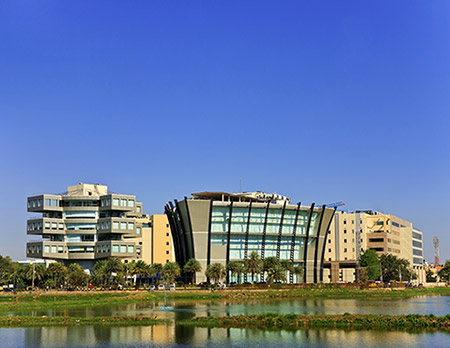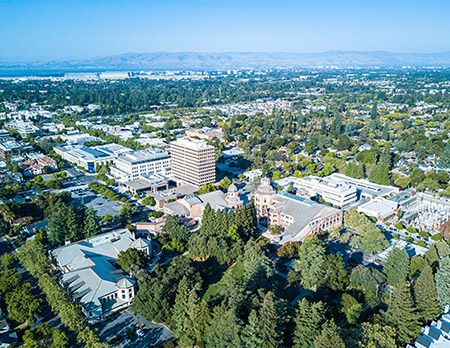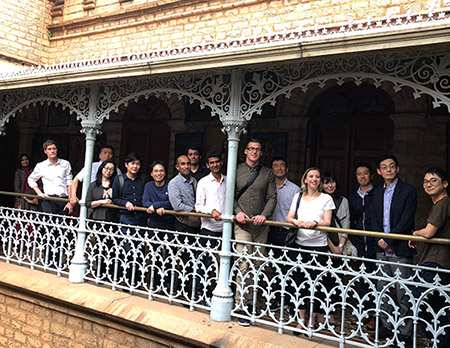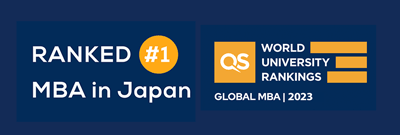Distinctly you
The Hitotsubashi ICS EMBA is a “bespoke” educational experience. It is based on you: your professional growth, your career objectives, your highest aspirations for yourself and your company. We launched this program in 2017 with an intentionally crafted flexibility in mind to afford participants maximum applicability to their work and careers. Three key program features achieve this:
-

Silicon Valley -

Silicon Valley -

Bangalore -

Bangalore
EMBA Capstone
Hitotsubashi ICS develops business professionals as global leaders with practical wisdom. In this key deliverable of the Hitotsubashi ICS EMBA program, you’ll work individually and over time to develop a plan to solve a business problem, or make use of a business opportunity, facing your sponsoring organization. Your Capstone Project not only helps you integrate the Foundation Stage content you learn, but is also the organizing principle for your Mastery Stage. During the Mastery Forums taking place over five weekends in January to May, you’ll share your thinking with peers and faculty, then refine your work based on the feedback you receive. At the end of the program, you’ll present your plan to your sponsoring organization.
- Detail
-
SELECT You choose the unit of analysis and project type for your Capstone Project.
The unit of analysis can be:- Your company or a significant business unit of the participant’s company; or
- A new business or business unit (to be started by your company, or as a startup)
The project type can be:- Overall strategy (a medium-term plan for participant’s company, business unit or industry?);
- Transformation (a plan to strengthen the innovative capabilities of participant’s company, business unit or industry?);
- Opportunity identification (business unit or industry?);
- Restructuring (a plan to restructure participant’s company, business unit or industry, or exit the market?); or
- Business plan (for a new startup or for participant’s company or business unit to launch a new product or enter a new market?)
PROPOSE Hitotsubashi ICS faculty will review your proposed theme, due by an assigned date in late January. Then, in dedicated, 75-minute sessions scheduled between February and May, all EMBA candidates will present their Capstone projects to faculty and peers, who’ll offer views and insights to improve upon the strategy your project proposes.
Your proposal will contain:- A description of the unit of analysis and project type;
- A plan to fulfill the public presentation requirements of the Capstone Project;
- A timeline for developing and submitting the final deliverable.
- A description of the final deliverable format
DELIVER Adhering to program standards, you’ll submit your Capstone work by the end of the Mastery Stage. Your Capstone will be assessed by Hitotsubashi ICS faculty.
- Digital elements. We encourage, but not require, you to get creative and integrate digital technology into your presentation. Add a blog chronicling your project, a website to house and develop your project; or even do a fully digital public presentation.
- Public presentation. You’ll present your Capstone conclusions to senior management of your sponsoring company, or a group of professionals capable of giving critical feedback by a set date.
- Content. Your Capstone should:
- Be a holistic strategy integrating many of the subjects taught in the core courses
- Use and build on the knowledge and tools taught in the EMBA curriculum
- Integrate theory and practical experience
Immersions
The Immersions are visits to three different locations to learn the latest global business practices, firsthand. They include two Global Immersion Experiences (“GIE”) and one Global Network Week (“GNW”), both designed to show the complexities of global business, in person and in context. Both are full-week experiences where students delve right into the lively setting of a growing region and sector. (See the 2018 calendar)
- Detail
-
GIE Bangalore is one week in Bangalore, India, visiting local companies, multi-national companies and non-profits, interacting with local managers and entrepreneurs, and learning from local experts. You’ll see firsthand the challenges and opportunities of doing business and addressing social needs in the dynamic, high-tech and entrepreneurial center of India. Themes of GIE Bangalore: - Doing business in emerging markets (including “Bottom of the Pyramid”)
- Innovation in appropriate technology (primarily, “reverse innovation”)
- Entrepreneurship (primarily focused on opportunities with potentially large positive social impact)
- Creative, including not-for-profit, solutions to global challenges
GIE Silicon Valley is one week in Silicon Valley, the leading entrepreneurial ecosystem in the world. You’ll experience the thrilling challenges of the start-up culture, meet key players in this ecosystem, and learn from local experts about the latest developments in technology innovation and their potential not only to transform and disrupt business, but also to provide solutions to big problems.
Themes of GIE Silicon Valley:- Impact of technology (primarily, digital technology, including AI and robotics, on existing business models)
- Leading innovation in companies;
- Entrepreneurship in the for-profit sector
- Technological solutions to global challenges
Global Network Week Hitotsubashi ICS is a founding member of the Global Network of Advanced Management (GNAM). Through this network, you’ll select a location outside Japan for a week of study at another GNAM school offering an executive MBA program. Alongside experienced managers from around the network, you’ll attend classes, tour local businesses, and meet with experts on current business problems. A key component of GNW is a team project that fosters collaboration with counterparts at other schools, in virtual teams and on the ground, to craft solutions that overcome obstacles to business.
More on Global Network and GNW .
Leadership Circles
EMBA programs are known for building close relationships during program activities. At Hitotsubashi ICS, we do this and more. To create the trust that underlies enduring relationships - the Japanese concept of “ba” – we conduct Leadership Circles throughout the academic year. This proven method, used successfully in many executive development programs and in multinational mergers, fosters the sharing of stories among participants and the exchange of feedback through open questioning and active listening.









